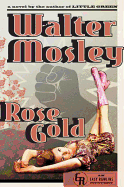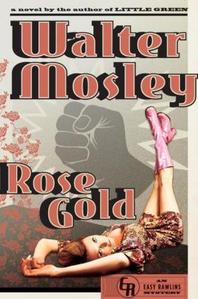

After a near-death car accident, Easy has just moved to a new house when he is approached by the special assistant to the LAPD's chief of police. On offer is a confidential assignment to assist in finding a wealthy, white arms manufacturer's missing daughter, Rosemary, believed to be kidnapped by a black former boxer and murder suspect named Battling Bob Mantle. Easy knows of Mantle, and finding missing people is his bread and butter, but he distrusts the LAPD and understands they want his help only because he's black and can move easily in the neighborhoods where they cannot. As he tells his only friend in the police department, "I'm good at what I do.... They don't see me comin', don't know when I'm there, and couldn't tell you when I left."
The case gets complicated by the Patty Hearst-like political leanings of the missing girl, and Easy finds her trail littered with murders, robberies and megalomaniacal commune leaders--but nothing to implicate Battling Bob. Mantle appears to be the black fall guy, used to cover up police corruption and illegal government arms sales. To untangle the web and deal with those bad guys who need dealing with, Easy calls on his old friend Raymond "Mouse" Abernathy (whose "business is high-end heists with the strong possibility of brutality and bloodshed") and teams up with Rosemary's mother's bodyguard, Teh-ha Redbird (a man of Taaqtam Indian descent who is "maybe five ten and strong the way good rope is--slender and knotted").
Mosley's best writing not only tells a good story, but also quietly draws attention to the many ways that race impacts life in the United States. Each of his characters is painted with a precise description of skin coloring, hair style, clothing or other physical highlights, such as this picture of Easy's girlfriend Bonnie: "She had a nice figure on a nice frame... with dark skin and the almond shaped eyes of Western Africa... her hair was straightened because her employer, Air France, looked down on hairdos like Angela Davis's." Mosley reminds us that people aren't colored in black or white, but rather in unusual shades in between with the physiological characteristics of our many origins. Of his quixotic fight against injustice, Easy says: "I skipped the windmill completely and went wielding my sword against the wind itself." We are lucky to have Mosley lifting his lance on behalf of racial understanding, and Rose Gold is one of the best of his not-always-so-easy Easy Rawlins novels. --Bruce Jacobs, founding partner, Watermark Books & Cafe, Wichita, Kan.
Shelf Talker: Mosley's 13th, and perhaps best, Easy Rawlins novel untangles a missing-persons case amid the political uneasiness of Los Angeles in the 1960s.

